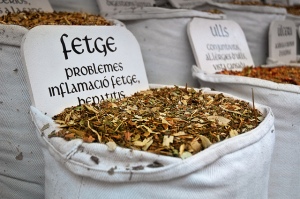 Modern medicine has enabled people to live longer lives, but what have we lost in turning our backs on traditional ways of healing? Today, heart disease is the number one cause of death around the world. An estimated 17.3 million people died from cardiovascular diseases in 2008, representing 30% of all global deaths. Although we often associate these conditions with industrialized countries, and indeed more than a third of Americans are considered obese, surprisingly over 80% of these deaths occur in low-and middle-income countries (WHO, 2012). Rates of other diseases associated with modern lifestyles, such as diabetes and cancer, are not far behind. What can we learn from indigenous healing practices to bring about less costly and more sustainable solutions for improving health in both North and South?
Modern medicine has enabled people to live longer lives, but what have we lost in turning our backs on traditional ways of healing? Today, heart disease is the number one cause of death around the world. An estimated 17.3 million people died from cardiovascular diseases in 2008, representing 30% of all global deaths. Although we often associate these conditions with industrialized countries, and indeed more than a third of Americans are considered obese, surprisingly over 80% of these deaths occur in low-and middle-income countries (WHO, 2012). Rates of other diseases associated with modern lifestyles, such as diabetes and cancer, are not far behind. What can we learn from indigenous healing practices to bring about less costly and more sustainable solutions for improving health in both North and South?
Natural healing in Nepal
The Tharu people of central Nepal have cultural belief systems that demonstrate an immense knowledge and respect for the Earth’s biodiversity. These systems contain rules and rituals that define how the environment should be treated – as integration of body, mind and spirit – for the wellbeing of the people in the world. Remarkably, the Tharu are immune to malaria and this immunity may have developed due to their longer residence in the forest, where they developed human-nature coexistence (Dhakal et al, 2011; Gunaretne, 1999). The Tharu healers—Gurau—base their healing practices on observing nature and using resources from the surrounding ecosystem.
In my own childhood experience of traditional knowledge, many herbs and spices were used to cure minor diseases. For example, my mother used to mix ginger juice and camphor to massage for chest pain and cough. This was an alternative to Vicks Vaporub (mentholated topical cream used for cough suppression). Simple body pains, minor stomach disorders, sinus infections and headaches were treated within the household. Treating illness in this manner may have helped to prevent other diseases by stopping the initial problem. This way of healing also avoided the side effects common with pharmaceutical drugs.
Read more: http://theeconomicsofhappiness.wordpress.com/2014/07/17/indigenous-knowledge-and-global-wellness/























